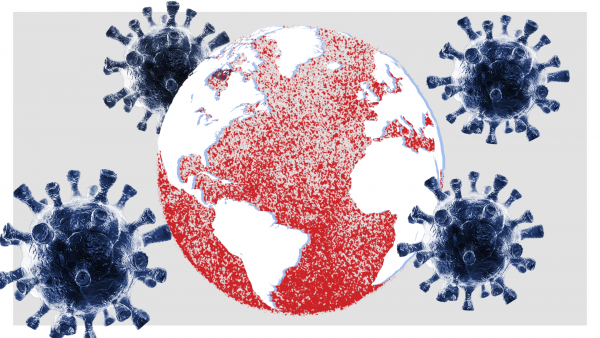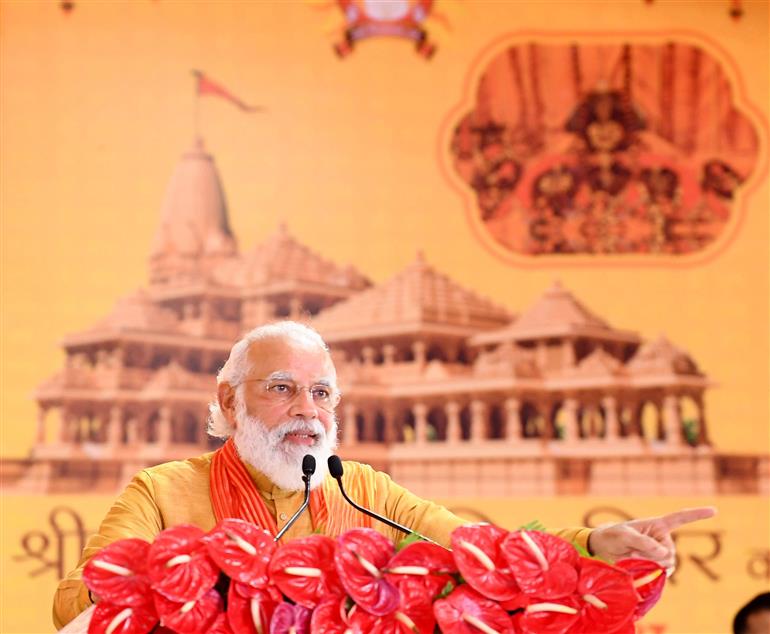Ashvini Prem, BSc. Politics and IR ‘25 (Read time: 6.5 mins)
Malaysia held its 15th General Elections (GE15) on the 19th of November 2022. After enduring the turmoil of having 3 different administrations over the last 4 years, the call for a general election hoped to bring some stability to the ongoing political crisis. However, the increasingly divided nation left little belief that a single coalition could gain a simple majority in this election.
Coalition Parties
The dominant coalitions campaigning in GE15 were comprised of the following parties:
- The National Alliance (PN)
Formed in 2020 to replace the then-incumbent government, PN consists of member parties Malaysian United Indigenous Party (BERSATU), Malaysian Islamic Party (PAS), and Malaysian People’s Movement Party (GERAKAN). It is currently chaired by Tan Sri Dato’ Haji Muhyiddin Yassin. - The Alliance of Hope (PH)
When parties DAP and PAS encountered opposing views that thereby separated their previous coalition, PH was formed in 2015. It is currently chaired by Dato’ Seri Anwar Ibrahim, with the membership of the Democratic Action Party (DAP), People’s Justice Party (PKR), National Trust Party (AMANAH), and United Progressive Kinabalu Organisation (UPKO), plus a close alliance with Malaysian United Democratic Alliance (MUDA - The National Front (BN)
The longer-existing alliance of BN was formed in 1973, designed to present a united front as a 9-party coalition. Since then, its membership has decreased to four main parties, namely the United Malays National Organisation (UMNO), Malaysian Chinese Association (MCA), Malaysian Indian Congress (MIC), and United Sabah People’s Party (PBRS). Its current chairman is Dato’ Seri Dr Ahmad Zahid Hamidi - The Sarawak Parties Alliance (GPS)
An entirely Sarawak-based alliance, GPS was formed in 2018 after a unanimous decision to separate itself from BN. GPS aims to cater specifically to Sarawak’s interests, comprising the United Bumiputera Heritage Party (PBB), Sarawak United People’s Party (SUPP), Sarawak People’s Party (PRS), and Progressive Democratic Party (PDP). Its incumbent chairman is Tan Sri Datuk Patinggi Abang Abdul Rahman Johari Abang Openg.
- Sabah People’s Alliance (GRS)
Similar to GPS, GRS was formed in 2020 as a Sabah-centred alliance tailored towards Sabah’s needs, chaired by Datuk Seri Panglima Hajji Hajiji Noor. Its membership consists of the Homeland Solidarity Party (STAR), United Sabah Party (PBS), Sabah Progressive Party (SAPP), United Sabah National Organisation (USNO), as well as independent politicians. GRS has been aligned with BN for the last 2 years (2020-2022).
Party Ideologies
As part of their campaigns, each coalition party released a manifesto outlining their agenda should they be elected as the majority government. Key points from each manifesto will be highlighted and scrutinised below.
- PN’s ‘Concerned, Clean, Stable’ Manifesto
- PN summarises its achievements from its 2020-2021 administration, followed by its political agenda, which includes the highest amount of public funding projects among the other coalitions. The membership of PAS, a conservative Islam party, may have contributed to the manifesto’s predictable endorsement of Syariah courts and its relevant legal system along with the incorporation of special privilege programmes for Malays. Researcher Lee Hwok Aun attributes such programmes to PN’s attempt to increase their weak pull with the Malay community. However, critics hold the opinion that much of what was presented in PN’s manifesto appeared to be vague or lacked practical application.
- PH’s ‘We Can!’ Manifesto
- PH highlights 10 priorities, which notably include improving disaster-handling systems and giving permanent jobs to contract health workers. PH also evidently aims to be more inclusive towards Sabah and Sarawak by upholding the Malaysia Agreement of 1963, which would increase the legislative powers of Sabah and Sarawak. More striking was its promise to award a Deputy Prime Minister position to a Member of Parliament representing East Malaysia, as well as to increase the East Malaysian parliamentary seats from 25% to 35%. A common criticism of the manifesto is the absence of tax reform approaches, and its generally-insufficient attention to the imminent downturn the Malaysian economy will face in 2023. On a related note, PH’s pledge to increase funding for public healthcare to 5% of the GDP within 5 years, while favourable, is ambitious given the current economic state, with experts estimating 10 years to achieve such a goal. Such ambition may remind Malaysians of the bitter taste of the unreliability of PH in GE14, only fulfilling 2 out of their 10 promises outlined in the previous manifesto.
- BN’s ‘Stability and Prosperity (PADU)’ Manifesto
- Among BN’s political agenda is its focus on low-income households (B40). It promises free education and laptops for students of B40 families, even up to tertiary education. Additionally, the introduction of ‘assistive basic income’ aims to eliminate absolute poverty, but fails to explain the mechanisms of such a programme. Separately, while BN advocates switching to online learning to reduce the cost of education, it contradictorily champions the autonomy of tertiary education institutes. Researcher Lee Hwok Aun also notes the ‘conspicuous absence’ of anti-corruption initiatives, which BN has been continuously accused of in the past decade. Despite maintaining current race-based privileges, surprisingly, and somewhat progressively, the manifesto excludes new policies aimed at the special privileges of Malays, which BN had previously strongly endorsed, perhaps hinting that such notions are increasingly seen as outdated. The PADU manifesto questionably misses an elaboration of the 2023 budget as well. However, its approaches to economic prosperity are abundant, with brief touches on environmentalism and the inclusivity of Sabah and Sarawak in national affairs.
- GPS’s ‘Ensuring Sarawak’s Stability, Progress and Prosperity’ Manifesto
- GPS showcases its accomplishments before highlighting 5 pillars of political action, encompassing political and economic stability, economic prosperity, urban and rural development, social justice and religious freedom, and an enhanced government administration. It garnered praise from Sarawak’s state leaders, with multiple accounts of the manifesto being ‘comprehensive’ and reflecting the wants and needs of the people accurately. However, despite PH’s attempts to appeal to East Malaysian coalitions, the GPS Chairman criticises the PH administration by resurfacing its manifesto 4 years prior, declaring it an ‘empty promise’, as well as by expressing GPS’s discontent with PH’s dismissal of it from 2018-2020.
- GPS showcases its accomplishments before highlighting 5 pillars of political action, encompassing political and economic stability, economic prosperity, urban and rural development, social justice and religious freedom, and an enhanced government administration. It garnered praise from Sarawak’s state leaders, with multiple accounts of the manifesto being ‘comprehensive’ and reflecting the wants and needs of the people accurately. However, despite PH’s attempts to appeal to East Malaysian coalitions, the GPS Chairman criticises the PH administration by resurfacing its manifesto 4 years prior, declaring it an ‘empty promise’, as well as by expressing GPS’s discontent with PH’s dismissal of it from 2018-2020.
- GRS’s ‘Sabah First, Sabah Forward, Sabah Prosper, Sabah United’ Manifesto
- GRS’s Manifesto covers economic prosperity, as well as the heightened autonomy of Sabah by assuming control of the electricity industry and the reclamation of rights under the Malaysia Agreement of 1963. In a similar fashion to PH, GRS requests the position of Deputy Prime Minister be awarded to a Sabah MP, and an increase in the percentage of East Malaysian seats to 35%. Rivalling coalitions’ increased alignment with East Malaysian politics perhaps exhibits their foreseen inability to gain a simple majority in GE15, thus attempting to rope East Malaysian parties into a new coalition that would give them a simple majority. However, the GRS Chairman’s open endorsement of the cooperation between GRS and BN left little anticipation for a GRS-PH collaboration.
Results
Coalitions needed a simple majority of 112 out of 222 Malaysian parliamentary seats.
PH won the most, with 81 seats (including affiliate parties, 82 seats), followed by PN with 74, BN with 30, GPS with 23, and GRS with 6. A further 7 seats were won by independent candidates and non-coalition parties.
Notable wins:
- PN and BN Chairmen have retained their seats
- PH’s Chairman’s victory in a different constituency than he usually contests in
- Immediate past Prime Minister Dato’ Sri Ismail Sabri successfully defended his seat
Prominent losses:
- Former Minister of International Trade and Industry Azmin Ali, the cause of which has been speculated to be his defect from PKR and thus a direct involvement in the political crisis of 2020.
- Former Health Minister Khairy Jamaluddin of BN faced his first loss in three terms.
- Tun Dr Mahathir Mohamad, Malaysia’s former 4th and 7th Prime Minister, won only about 17.9% of the votes in Langkawi.
- The bulk of BN losses also included former Finance Minister Datuk Seri Utama Tengku Zafrul Aziz, and longtime MP Tan Sri Tengku Razaleigh Hamzah.
- Despite Ahmad Zahid Hamidi’s ability to defend his seat, BN’s overall poor performance in GE15 left many BN MPs calling for the chairman’s resignation.
- Dato’ Seri Anwar Ibrahim’s daughter also contested in Penang, a seat that was formerly held by himself, then by his wife, Dato’ Seri Dr Wan Azizah Wan Ismail. Her loss of the Penang seat effectively ended this ‘legacy’.
A Hung Parliament
With no coalition gaining the simple majority, parties faced a dilemma – either PH or PN would have to reconcile and merge with other coalitions in order to form at least 112 seats. However, both PN and GPS revealed an unwillingness to collaborate with PH to give them the simple majority due to a hostile history. Furthermore, an alliance between PH and BN may prove to be inefficient and unstable due to their ideological differences, while BN leaders have been adamant about their aversion to working alongside both PN and PH. Although GRS and GPS had originally backed PN, they received backlash for endorsing an Islamist government, given a majority of the Sarawak population is Christian. On the other hand, GPS expressed its unwillingness to ally itself with DAP, making a coalition between GPS and PH unlikely as well.
The Unity Government
Unable to form any new coalitions, the King recommended coalition leaders form a unity government: an administration governed by all parties and existing coalitions. After garnering support from GPS, GRS and BN, Datuk Seri Anwar Ibrahim was officially appointed as Prime Minister, alongside Datuk Seri Fadillah Yusof of GPS as Deputy Prime Minister, as per PH’s promise. Despite BN’s initial reluctance to join the unity government, the King requested its participation in order to fully unify Muslim and non-Muslim parties. However, despite the use of the term ‘unity government’, which denotes a lack of opposition, PN has chosen not to join hands with PH, GPS, GRS and BN.
The Future
With the political crisis somewhat resolved, the next step for the unity government is to propose the budget for 2023. Amidst conflicting objectives, internal disputes within the new government and the current recession, tabling the 2023 budget will prove to be a challenge for the new government, which has yet to find its footing.







Very well written.